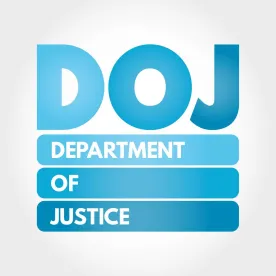On February 3, 2023, the U.S. Department of Justice’s Antitrust Division (DOJ) announced that it is withdrawing three policy statements the DOJ and Federal Trade Commission (FTC) issued between 1993 and 2011, related to antitrust enforcement in the healthcare industry that, among other things, address the permissibility of information sharing. Although the now-withdrawn policy statements pertained specifically to health care, the statements have widely been used to inform the antitrust analysis of information sharing — such as pricing and wage surveys — across a range of industries.
In withdrawing the policy statements, the DOJ called the statements “outdated” and “overly permissive on certain subjects,” most notably the exchange of price and cost information between competitors. The announcement did not say whether the DOJ plans to replace the statements with alternative guidance; instead, the announcement says the DOJ will take a “case-by-case enforcement approach” to evaluating such conduct in the future.
The DOJ’s move effectively eliminates longstanding safe harbors the DOJ had established for information sharing in the healthcare industry. Most notably, in the 1996 Statements of Antitrust Enforcement Policy in Health Care, the DOJ and FTC established an “antitrust safety zone” for certain exchanges of price and cost information among healthcare providers. The safe harbor assured the business community that, absent “extraordinary circumstances,” the DOJ would not challenge competing healthcare providers’ participation in surveys about prices for healthcare services or employee compensation so long as the following conditions were met:
-
An independent third party managed the survey;
-
The information provided was more than three months old;
-
At least five providers contributed data to the published statistic;
-
No single provider’s data represented more than 25% of the information provided on a weighted basis; and
-
The data was sufficiently aggregated so participants could not identify who provided it.
Before last week’s announcement by the DOJ, companies in all sectors of the economy could rely on these statements to feel reasonably confident that the mere sharing of backward-looking, anonymized, and aggregated pricing information was unlikely to draw scrutiny from antitrust authorities. The DOJ’s withdrawal of this policy statement potentially changes that.
Although the policy statements applied specifically to the healthcare industry, the impact of the DOJ’s withdrawal of those statements will not be so limited, given the agencies’ reliance on the statements in a variety of other contexts. For example, the 2016 DOJ and FTC Antitrust Guidance for Human Resource Professionals, which is not specific to the healthcare industry, cites the 1996 Healthcare Policy Statements in explaining how to design and implement an antitrust-compliant information exchange for wage- and employee-benefit information in all sectors. In 2021, President Biden’s Executive Order on Promoting Competition in the American Economy directed the DOJ and FTC to consider whether to revise the HR Guidance “[t]o better protect workers from wage collusion;” therefore, further revisions to the HR Guidance may well be forthcoming.
Similarly, the DOJ and FTC Antitrust Guidelines for Collaborations Among Competitors cite the now-withdrawn healthcare policy statements and articulate many of the same principles with respect to information sharing, noting that sharing historical information and aggregated data is generally less problematic than sharing future company plans and individualized data. The DOJ withdrawal may prompt revisions or withdrawal of those guidelines as well.
Importantly, the DOJ’s withdrawal of the policy statements does not change existing antitrust law that holds the exchange of competitively sensitive information, without an agreement to fix prices, is not itself a per se violation of the Sherman Act. Instead, information sharing can only be found unlawful under the “rule of reason,” based on an actual finding of harm to competition and a consideration of any countervailing procompetitive benefits from the exchange. How the DOJ intends to apply its case-by-case approach — and the extent to which it seeks to apply a per se approach in a broader context — remains to be seen.
In addition to rescinding the safe harbor for information sharing, the withdrawals also implicate presumptions about when the DOJ will challenge certain hospital mergers and joint ventures, and the agencies’ approach to Accountable Care Organizations. Notably the 1996 Statements of Antitrust Enforcement Policy in Health Care set forth the widely recognized concept that, in appropriate circumstances, clinical integration and/or financial integration can justify joint managed care contracting by separately owned healthcare practices. At present, however, neither the DOJ nor the FTC has given any indication that either agency is fundamentally reconsidering this longstanding principle.
As of this writing, the FTC has not yet separately withdrawn any of these three policy statements. Therefore, while the statements continue to reflect the ratified policy of the FTC, it is safe to assume the FTC is actively reconsidering its support of these statements as well.
In summary, the DOJ’s announcement should give pause to companies in all industries that participate in exchanges of price, wage, or other competitively sensitive information. Such companies are encouraged to contact antitrust counsel to help them navigate this new environment.
Melinda F. Levitt, Kate E. Gehl, Ian T. Hampton, and Richard L. Flannery also contributed to this article.









 />i
/>i

